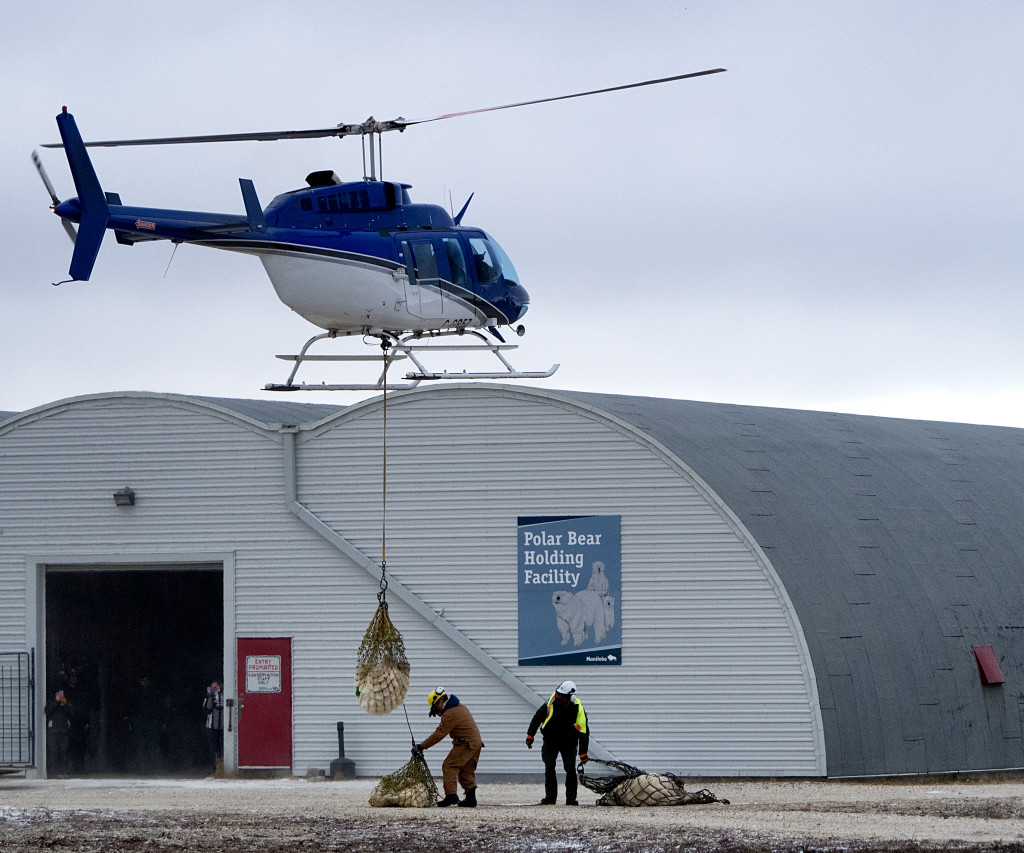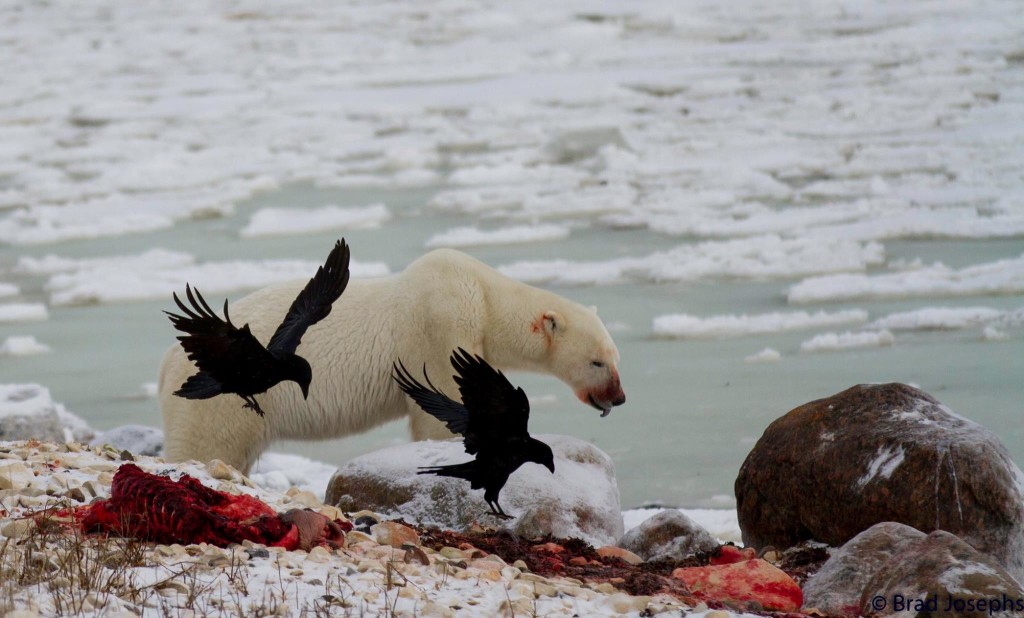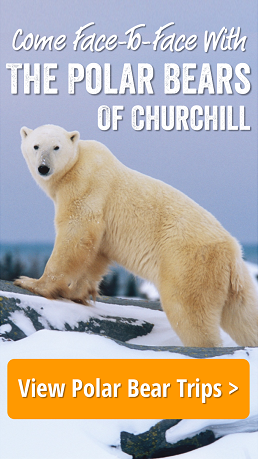An assessment of Manitoba government statistical documents point to increased polar bear encounters with people in Churchill, the self proclaimed polar bear capital on the shores of Hudson Bay. As a result of increased interaction between polar bears and humans the numbers of incarcerated bears has nearly doubled since 2013. That year 36 animals were captured and taken to the polar bear holding facility, or jail, compared with 65 this past year.

Polar bear lift in Churchill. Justin Gibson photo.
Over the past three years the numbers of documented cases of polar bear encounters in Churchill has risen from 229 in 2013 to 351 last year. All aspects of the current numbers point to increased activity between bears and humans in Churchill.
Daryll Hedman is the regional wildlife manager for Manitoba Conservation. His view on last year’s record for the number of polar bears caught in the populated “control zone” of Churchill indicates that even the authorities that deal with these animals on a regular basis are somewhat alarmed by the data. “Three hundred and fifty-one — for occurrences, that’s a high number,” he said.
Hedman and other experts are pointing to climate change as the culprit and resulting decreased sea ice as largely to blame. Over two-thirds of the planet’s polar bears live in Canada though experts are claiming that within only a few decades we could have a massive decline in numbers. With later freeze up in Arctic waters and thawing coming earlier in the spring, polar bears are competing for fatty seal meat within a tighter window. This impacts cubs trying to survive their first year the most. According to Andrew Derocher, a leading polar bear authority from University of Alberta, fewer cubs are making it through their first year out of the den. They simply are not getting the extended seal – hunting training on sea ice that they once were.

Polar bears spending more time on land are more likely to migrate to inhabited areas like Churchill in search of food. These encounters are happening more often and earlier in summer. Not that long ago polar bears rarely appeared in Churchill before August. Now early July seems to be the norm.
“What’s the tipping point?” Headman said. “What’s the threshold that they can go without food? When they’re on land, they’re not eating.”How long can they sustain themselves without getting onto that sea ice platform to hunt seals again?”

